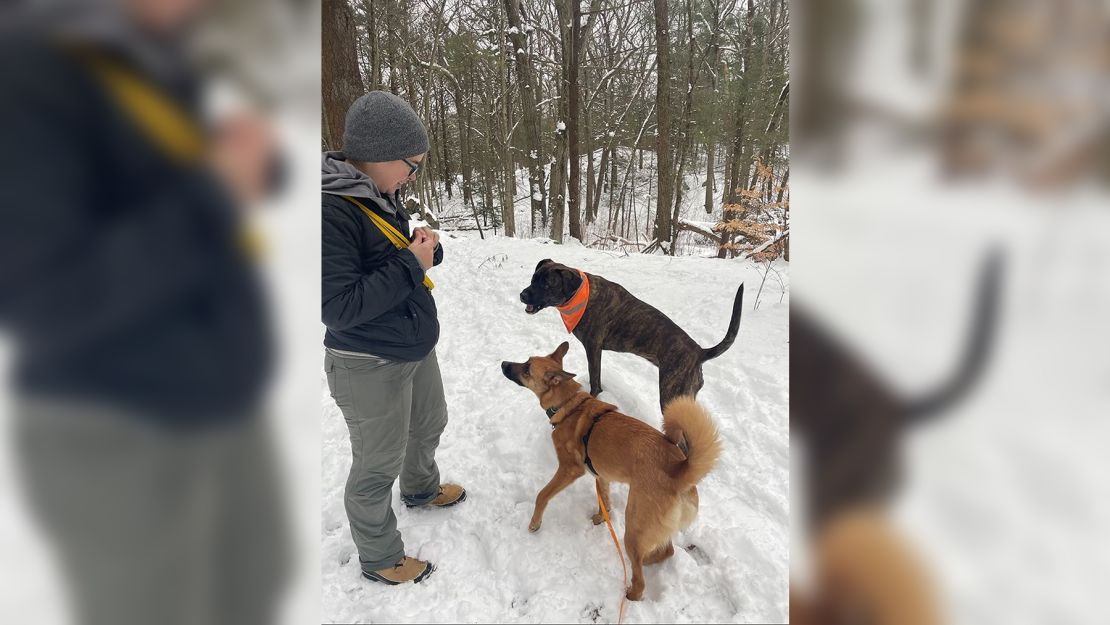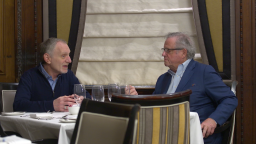Sign up for CNN’s Stress, But Less newsletter. Our six-part mindfulness guide will inform and inspire you to reduce stress while learning how to harness it.
Forming new friendships is important for mental well-being, my husband recently told me. He’s a therapist and shared this advice during a podcast with me about weathering pandemic stress and uncertainty.
I balked, because I feel too overwhelmed by life to reach out to new people like I did in high school and college.
But I realized that I have been making friends. Over the past two years, I have mostly communicated and shared my lowest moments with a dozen fellow authors – only two of whom I have met in person.
Welcome to pandemic friendships.
My author group meets regularly. We came together for professional reasons and evolved to support one another through celebration and loss. I wept when the group sent flowers and a massive box of cookies during a devastating time. How had I grown to confide deeply in people through screens? How did they see me so clearly?
And how are others finding friendship during this isolating time? I put out a call on social media, and here are eight things I learned. Many apply regardless of your age.
Movement matters
The desire to move, be outside and try different things can set the stage for new relationships.
Abi Noble of Indianapolis learned how to play pickleball last summer on vacation with friends. She enjoyed the activity so much that she found outdoor classes through her town recreation department the following month, signed up and made new friends.
Traditional brick-and-mortar marketing led Andrea Hendry of Seattle to friends through a fitness class for moms. “The studio had a sign that I saw when taking my kids to school,” Hendry said. “I checked it out because their classes were all outdoor and virtual.”
Let furry friends lead
Sometimes an owner can benefit from following a dog’s lead.
Ran Courant-Morgan of Boston connects with fellow dog lovers on social media and has been on countless hikes with new human and canine friends during the pandemic.
“Having young, energetic dogs means that we often need to be outside anyway,” Courant-Morgan shared.

Lean into creativity
Creative groups can be a source for growth and new relationships.
Ann Willis of Olympia, Washington, joined a recreational mixed-level clothing design group on Facebook.
“We network ideas and find inspiration and confidence to take our sewing to new levels,” Willis said.
Participation in this creative community led Willis to enter two art shows.
Gaming isn’t just for kids
Children aren’t the only ones finding community through gaming.
After following up on an online opportunity to learn to play Dungeons & Dragons, Ivy Vann of Peterborough, New Hampshire, made new friends and became a social hub herself. “Because I have a big dinner table and no children living at home, my husband and I usually host,” Vann said. “I became, at age 65, the world’s oldest living D&D novice.”
Susan Bingham of Waltham, Massachusetts, also connected with D&D enthusiasts online and met two families she now considers close. “We play over Zoom every week, talk on Messenger almost every day and have visited each other’s homes when Covid has allowed despite living three hours apart,” Bingham said. “I can’t imagine the last two years without them.”
Your next friend may live next door
Many people shared stories about connections made in their neighborhood.
Curious about exploring a secondhand approach to consumables during the pandemic, Jen Cole of Gaithersburg, Maryland, joined a Buy Nothing group on Facebook and found a community of giving-minded, supportive neighbors.
In addition to social gatherings, the group has provided months of food for a member with terminal cancer and collected donations for organizations supporting refugees, people experiencing homelessness and children entering foster care.
What started as quick check-ins and shared grocery runs with neighbors evolved into something more for Jean Hsu of Berkeley, California. Hsu started sharing the results of her baking hobby with two neighbors on her street and a cousin a few blocks away. Over time, regular gifts of homemade yogurt and ice cream, fresh fruit and pasta dishes started rotating between them. “I feel like my local community has become much stronger,” Hsu said.
Support can evolve from parenting stress
New friendships have evolved from the stress of parenting during the pandemic.
Sarah Ahearn Bellemare of Northampton, Massachusetts, befriended a new neighbor with whom she may not have connected before the pandemic due to the age differences of their kids. When the lockdown started, the neighbors found that their kids could easily play outside together; family walks soon followed. She made another close friend amid frustrations over remote schooling. “Texting with her about what was happening in first grade Zoom saved me.”
In addition to making new friends through neighborhood walks with her dog and baby, Elizabeth Belcher of Las Vegas made invaluable friends online through an in vitro fertilization community. “As a lesbian couple doing RIVF (reciprocal IVF), I’ve shared our story from the beginning, and being vulnerable helped others connect with us,” she said.
Stephanie Romanson of Winnipeg, Manitoba, found solidarity online and at the park. “I became a first-time mom in June 2020 and connected with other moms who were struggling with the isolation and missing ‘firsts’ like baby showers, birthdays and hospital visitors,” she said.
Let existing groups do the work
Communities with established groups may lead you to your next friendship.
After moving during the pandemic to be with her fiancé, Leah Dawdy of Spokane, Washington, found social connection challenging. At a friend’s encouragement, she found new friends through Bumble BFF. “It’s been nice to have my own friends,” she noted, “and to not rely on my fiancé and his schooling for a social circle.”
Membership in The Lola has been key for Amy Stone of Atlanta. The club pivoted to virtual during the pandemic and is now partially back in person. “There have been lots of opportunities for shared interests like book club and self-defense class as well as professional advancement,” Stone said.
Work relationships can evolve into friendships
Remote work blurred the lines between work and home; many relationships have followed suit.
My colleague Heather Whaling of Columbus, Ohio, found friendship in a WhatsApp group spun off from a professional networking group. “I didn’t know any of them before Covid, and now we have a constant dialogue about hard stuff, relationships, shows, pets, life, etc.,” she said “It’s magical and helped create new connections just when I needed it most.”
A virtual work introduction led to a meaningful friendship for Sarah Adkins of Cincinnati. “We started texting about our work and eventually started texting about personal things.” It was 14 months until the friends met in person; the two now spend time together regularly.
Friendships have even blossomed amid the chaos of the pandemic’s front lines. Public health worker Heather Harvey of Hamilton, Ontario, found that she and many of her colleagues were deployed in different roles when the pandemic started.
“I worked with some people I knew and others I didn’t. We quickly bonded over our shared circumstances, sharing laughs over instant messaging, phone chats and video calls,” Harvey said. “Many days the only thing that got me through was the support of these colleagues who became good friends.”
Putting yourself out there and building new relationships can feel difficult, but if we have learned anything in the past two years, it is that we can do what’s hard. Finding a new friend may be the best hard thing you do this year.
Christine Koh is a former music and brain scientist turned author, podcaster and creative director. You can find her work at christinekoh.com and on Instagram, Twitter and Facebook at @drchristinekoh.









